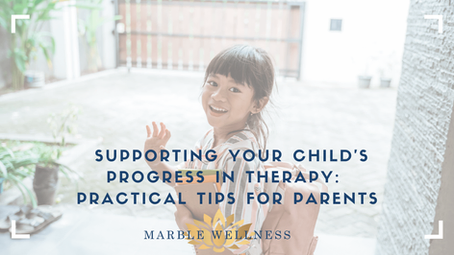
Parenting is a journey filled with ups and downs, and when your child is receiving therapy, it’s essential to be an active participant in their progress. Child therapy is most effective when it extends beyond the therapist’s office and into the home environment.
In our recent blogs, we’ve explored signs that parents can watch for that may indicate your child would benefit from child therapy and research that proves the efficacy of child therapy. In this blog, we’ll explore practical behaviors, actions, and routines St. Louis parents can implement at home to support their child’s therapeutic journey.
Tips from a St. Louis Child Therapist for Supporting Your Child’s Progress in Therapy
1. Foster Open Communication:
Effective communication is the bedrock of a successful therapeutic process. We know you hear about communication as the key to relationship success almost everywhere you go. We know it can feel trite, or maybe even eye roll inducing. But hey–if you’re hearing it everywhere, maybe there’s something to it!
Communication with your child is no exception. Maintaining open communication and participating regularly in a variety of conversations is key to helping your child thrive. Encourage your child to talk about their therapy sessions openly and honestly. Create an atmosphere where your child feels safe and comfortable discussing their feelings and experiences with you.
2. Establish a Consistent Routine:
Structure and routine can provide your child with a sense of stability and predictability, which is especially important for children in therapy. Create a consistent daily schedule that includes regular meal times, bedtime routines, and designated homework or playtime. Predictability can help reduce anxiety and create a more secure environment for your child.
We can even take it a step further and encourage you to make this schedule visible to your child. If they aren’t reading yet, use symbols to help them understand the flow of activities in your home. If they are reading, you can still use a mixture of symbols and words. Whatever the appropriate developmental level is for your kiddo, consider how helpful it is for them to not only have structure, but also anticipatory knowledge of that structure.
3. Implement Child Therapy Techniques at Home:
Collaborate closely with your child’s therapist to learn about the techniques and strategies being used in therapy. Incorporate these techniques into your daily routine at home. For example, if your child is learning relaxation exercises, practice them together before bedtime to reinforce their effectiveness.
Side-by-side activities with your child is a wonderful way to build a dynamic relationship with them, and it’s also an impactful tool for underscoring the lessons of their child therapy sessions. It also creates a chance for them to see you engaging in these helpful strategies, which is an extra bonus!
4. Offer Positive Reinforcement:
Acknowledge and praise your child’s efforts and progress. Positive reinforcement can boost their self-esteem and motivation. Celebrate their achievements, no matter how small, and let them know you’re proud of their hard work in child therapy.
5. Practice Active Listening:
Practice active listening when your child wants to talk about their feelings or experiences. Give them your full attention, maintain eye contact, and show empathy. Avoid interrupting or offering immediate solutions. Sometimes (actually, most times), all a child needs is someone to listen and understand.

6. Cultivate Patience and Understanding:
Therapeutic progress can be gradual, and setbacks may occur. Be patient and understanding. Recognize that healing and growth take time. Avoid placing unrealistic expectations on your child or yourself.
It may be useful to consider your participation in your own therapy during this time, or setting up a good frequency of checking in with your child’s therapist, so you can maintain being on the same page as the therapist, and have the knowledge and tools of managing expectations, disappointments, etc when it comes to your child’s behavior.
Parenting is hard work! You being supported through this process matters just as much.
7. Create a Safe Space at Home:
Ensure that your home is a safe and nurturing environment. Establish clear boundaries and expectations for behavior. Let your child know they can always come to you for support and comfort. A safe space fosters emotional well-being.
8. Consistency with Medication (if applicable):
If your child is prescribed medication as part of their treatment plan, ensure consistent administration. Keep a medication schedule and communicate with their therapist or healthcare provider about any concerns or side effects.
9. Encourage Journaling As a Child Therapy Technique:
Journaling can be a valuable tool for children to express their thoughts and feelings. Provide them with a notebook or journal where they can write or draw their emotions. Encourage them to share their journal with you if they feel comfortable.
10. Be a Positive Role Model:
Children often learn by example. Demonstrate healthy coping mechanisms and problem-solving skills in your own life. Show them how to manage stress, handle difficult emotions, and maintain a positive outlook.
11. Attend Family Therapy (if recommended):
If your child’s therapist recommends family therapy sessions, actively participate. Family therapy can address underlying family dynamics and help improve communication and relationships.
12. Educate Yourself:
Take the time to educate yourself about your child’s condition or challenges. Understanding their experiences and the therapeutic process can help you provide more effective support.
13. Promote Self-Care:
Emphasize the importance of self-care for both you and your child. Teach them healthy self-care practices like deep breathing, mindfulness, and physical activity. Prioritize self-care in your own life as well, modeling its importance.
14. Connect with Support Groups:
Consider joining a support group for parents or caregivers of children in therapy. Connecting with others who share similar experiences can provide valuable insights, advice, and emotional support.
15. Encourage Independence:
Encourage your child to take responsibility for their own well-being as appropriate for their age and development. Help them develop problem-solving skills and decision-making abilities.
16. Maintain Regular Check-Ins with the Child Therapist:
Stay in close contact with your child’s therapist. Attend scheduled meetings and check-ins to discuss progress, challenges, and any adjustments needed in the treatment plan.
17. Embrace Flexibility:
Be open to adjusting your parenting approach based on your child’s changing needs. Flexibility allows you to adapt to new insights and strategies from therapy.
18. Show Unconditional Love:
Above all, let your child know that your love and support are unwavering. Your consistent love is a powerful source of emotional strength for them.

Supporting your little one’s progress in child therapy is a collaborative effort between you, your child, and their therapist.
By implementing these practical tips and creating a supportive home environment, you can play a crucial role in your child’s journey toward improved emotional and mental well-being. Remember that every child is unique, and what works best may vary from one child to another. Stay attuned to your child’s individual needs, and together, you can help them thrive.
Meet the Author: St. Louis Child Therapist Whitney Griggs, LCSW
Whitney Griggs, LCSW, is a dedicated mental health clinician and an invaluable member of the Marble Wellness team in St. Louis. Whitney specializes in child therapy and preteen counseling, with a particular focus on addressing issues like anxiety, depression, and maternal mental health. Her passion lies in helping children, preteens, parents, and families navigate crucial life transitions.
Recognizing that starting therapy can be a daunting step, Whitney is committed to building trust and fostering collaboration right from the outset. She believes that therapy is a joint endeavor, partnering with you or your child to navigate complex emotions and confront challenges, ultimately building resilience.
Ready to take that first step toward your child’s positive transformation? Reach out to Marble Wellness today to schedule an initial child therapy session with Whitney. Begin your journey of growth and empowerment with Whitney by your family’s side, guiding you towards a brighter future.
Start Therapy for Mental Health in St. Louis
If you live in St. Louis and are ready to improve your mental health, we are here to help.
Contact Us!
Additional Counseling Services at Marble Wellness in St. Louis, MO and Chicago, IL
Counseling services designed to help set you on a path of living a more fulfilled, calm, and happy life.
St. Louis
Our St. Louis team of therapists have a variety of training backgrounds and areas of expertise. We specialize in anxiety, depression, grief, chronic illness, therapy for men, couples, and maternal overwhelm. We can also help new moms with various postpartum concerns, moms in the thick of parenting, and moms with teens. We can also chat from wherever you are in the state with online therapy in Missouri and online therapy in Illinois. No matter where you are in your journey, we would love to support you.
Chicago
Our Chicago team of therapists offer a wide range of mental health services to help our clients through the different challenges and hurdles in their life. In addition to anxiety, depression, grief, therapy for men, and maternal overwhelm, we are specialized in professional burnout, therapy for breakups, and love partnering with working moms.




